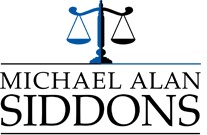In the difficult situation of needing to file for bankruptcy, it may be hard to decide which chapter of filing is best for you, especially if you qualify for both Chapter 7 and Chapter 13. Often, filing for Chapter 7, the liquidation option, can be more practical than Chapter 13, the reorganization option. Read on to learn more about why filing for Chapter 7 may be right for you and your finances.
Chapter 7: Chapter 7 bankruptcy is what most people think about when they think about bankruptcy. This is structured so as to wipe out your general unsecured debts, including credit card debt and medical bills. You’ll only qualify for this without a large amount of income, and if you make too much, you may be required to file for Chapter 13. This is the best option for debtors with relatively low incomes and low assets as a method of removing all unsecured debts.
Chapter 13: In a contrast to Chapter 7 bankruptcy, filing for Chapter 13 is usually reserved for those debtors with a higher than average income, or those who are capable of paying back their debts at least in part under a structured repayment plan. For many debtors, there’s usually not an option, and filing for Chapter 13 is their only choice. If you have the ability to choose between the two types of bankruptcy cases, filing for Chapter 7 is often more practical than Chapter 13.
Benefits of Chapter 7: The timeline for the two types of bankruptcy claims are vastly different. While Chapter 13 cases may be resolved with a multi-year repayment plan, those filed under Chapter 7 can generally be closed in under a year, with many less than six months. This is a highly attractive timeline for those seeking to become debt free! If you’ve filed for Chapter 13 bankruptcy and are unable to keep up with the repayment schedule, you will be stuck having to pay with the rest of the debt.
One all too common fear of debtors looking into Chapter 7 bankruptcy is that they’ll need to give up their property doing so, and they believe that it’s better to be in debt than on the streets. However, most people who file for Chapter 7 bankruptcy do not have to give up their property, even though it is possible. You’ll have enough to live on, and foreclosure and repossession can be halted during your filing actions.
How to Get Help: Navigating how to file for bankruptcy, as well as knowing which option you should pursue, can be a tricky subject. Enlisting the help of an experienced bankruptcy lawyer is key in making sure you’re getting the best counsel for this volatile time in your financial life. Contact the law offices of Michael Alan Siddons today to receive your free consultation, and begin seeking financial regrowth through your bankruptcy. Call our offices at (610) 255-7500 for expert counsel perfectly tailored to your own unique and important case.











